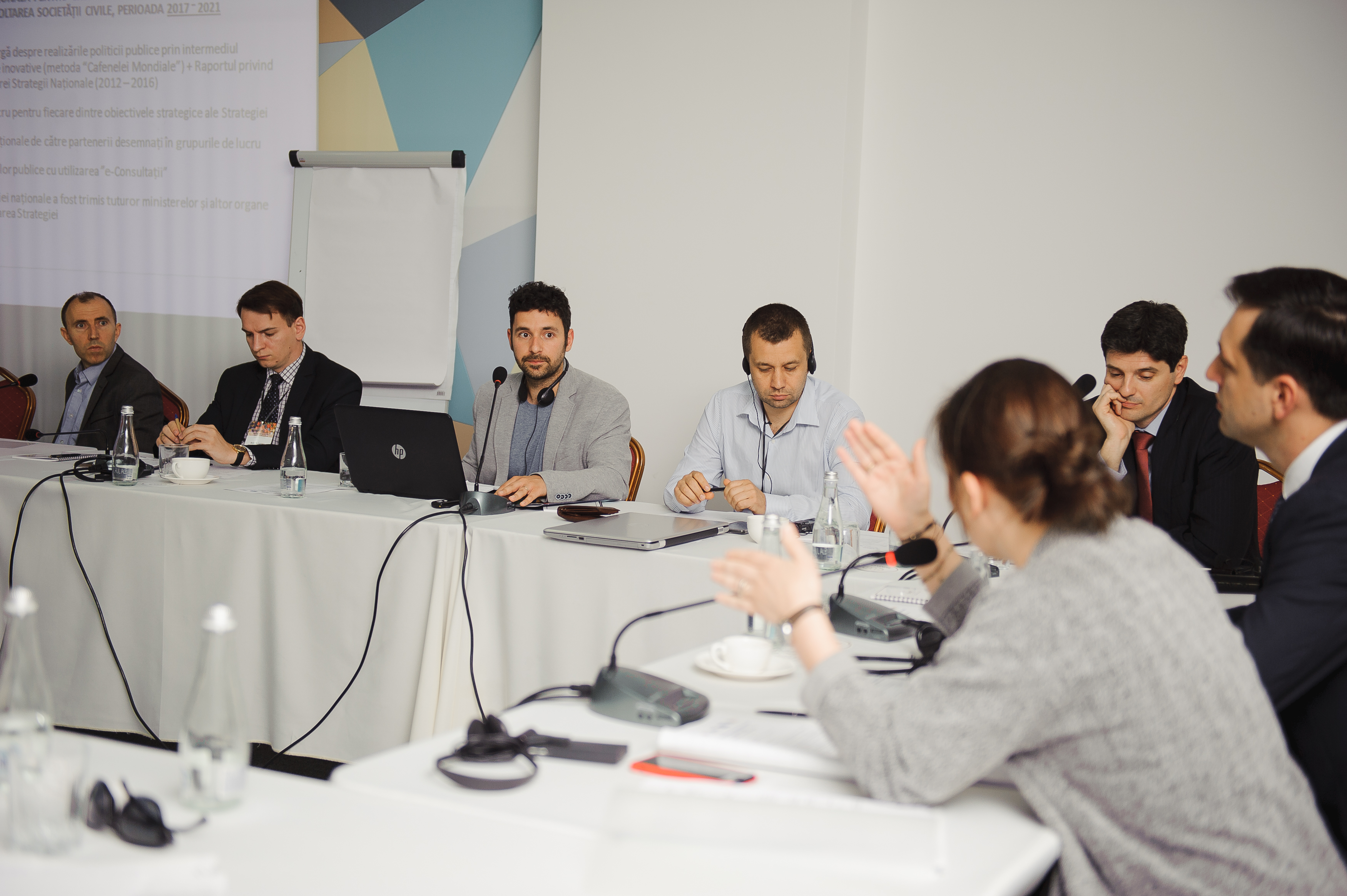Marking the successful completion of an almost 2-year process, the Moldovan Parliament adopted the new Strategy for Civil Society Development (2018-2020) on 23 March 2018 and published the text on 18 May 2018. Developed in a participatory manner through a number of consultations with three working groups of CSOs, MPs and government officials, the Strategy and its Action Plan include concrete deadlines for the implementation of specific measures that strengthen Moldovan civil society further, along with responsible implementing actors and planned sources of funding.

ECNL has supported the process of developing the new Strategy from the very start. Back in 2016 we prepared an evaluation of the implementation of the previous CSO strategy. Based on this evaluation, the work for the new Strategy started. At the request of Parliament, ECNL supported a consultant to help with the moderation of the working groups and drafting the new Strategy. Our experts also provided comments and comparative information on practices from other countries to leverage change. ECNL now turns to focus on how the policy document is applied in practice and will provide expertise to ensure its successful implementation. For instance, we supported the first kick-off meeting on the implementation of the adopted Strategy on 16 May 2018. ECNL convened all the major stakeholders (representatives of Parliament, State Chancellery, the ministries responsible for Strategy implementation and the CSO coordinators of the 3 working groups that helped draft the Strategy) to discuss how to ensure the implementation of the document. During the meeting participants shared that in order to move forward with the implementation of the Strategy in an effective manner, it is necessary to:
- Have clear terms of reference for the responsible person in the State Chancellery working on the issues of civil society;
- Have more than one person in charge of civil society at the State Chancellery;
- Clarify for all stakeholders the implementation unit in the Government responsible for civil society collaboration/development agenda, and what the specific mandate of that unit is;
- Have each line Ministry assign/appoint a responsible person in the Ministry for civil society cooperation;
- Have all line Ministries elaborate their institutional action plans on the implementation of the Strategy (once the delegated persons are in place).
In terms of next steps, ECNL is organizing a capacity building training for all state officials responsible for the Strategy implementation on engaging CSOs and will help three ministries to develop jointly with CSOs their immediate action plans for the first year of the Strategy implementation.
About the Strategy:
The Strategy pursues the implementation of three general objectives:
1. Strengthen the framework of participation of the civil society in developing and monitoring the implementation of public policies.
Some of the planned activities under this objective include:
- The creation of a structure responsible for the cooperation with the civil society (within the government);
- Improving the partnership between CSOs and the Parliament;
- Organizing joint trainings in transparency in decision-making of representatives of central and local public authorities and of civil society representatives; and
- Creating innovative mechanisms for promoting the participation of CSOs in decision-making.
Some of the expected outcomes are:
- The decision-making process is transparent.
- The involvement of CSOs in decision-making has increased.
2. Promote and strengthen the financial sustainability of the civil society.
Some of the planned activities under this objective include:
- Organizing a national information campaign about the enforcement of the 2% law and trainings for CSOs and officials;
- Amending the sponsorship and philanthropy mechanism and adjust the possibilities for donation deductions;
- Supporting opportunities for CSO contracting of public services and works;
- Ensuring CSO access to public funds;
- Promoting the transparency of CSOs.
Some of the expected outcomes are:
- The mechanism for designating 2% from the income of individuals is improved and functional.
- The mechanism of direct social contracting of social services and public works is adjusted and functional.
- CSOs have access to public funds and public funding programs.
3. Develop the active civic spirit and volunteering.
Some of the planned activities under this objective include:
- Adjusting the legal framework for volunteering;
- Supporting volunteering through establishing a National Volunteer Center, etc.
- Promoting civic education.
Some of the expected outcomes are:
- The legal framework is amended according to the international and European standards on volunteering.
- Authorities actively promote volunteering and its benefits.
- The education curriculum is adjusted from the prospect of the education for democratic citizenship, transparency in decision-making and access to information.